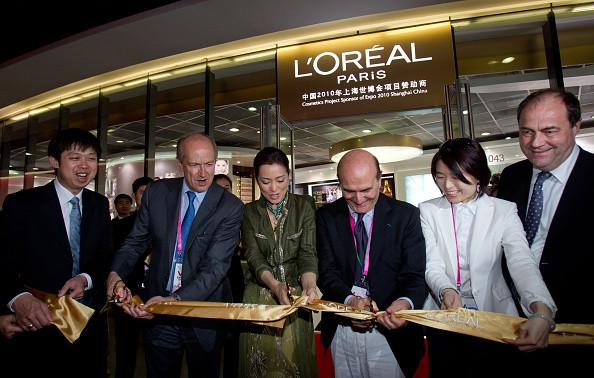China’s beauty market has a bright future, said Stephane Rinderknech, CEO L’Oreal China, in an interview with China Daily.
According to Rinderknech, the company is happy with Chinese economy’s efforts to maintaining its steady growth. The country plans to achieve the 6.5 percent economic growth target by shifting the focus from speed to quality, efficiency and sustainability.
He sees a bright future for the Chinese economy with the supply-side structural reform’s initial success and the deepening of industrial transformation and economic upgrading.
“China is accelerating the urbanization process by creating 11 million new urban jobs this year, which will bring opportunities for us. The further opening-up of the market will be conducive to stronger growth momentum in the beauty industry,” Rinderknech said.
“We not only accompany, witness and contribute to China's development, but also benefit from it,” said the CEO when he was asked to assess the role of the Chinese market in L’Oreal’s global business strategy and layout, citing the lower import duties and the consumption tax decline as examples.
Rinderknech views the One Belt One Road (OBOR) Initiative as a catalyst to economic globalization as it allows global brands like L’Oreal to “further expand their global footprint.” He said that the company will be glad to take part in possible initiatives as it seeks to carry on its high brand value and good reputation by bringing L’Oreal products to more consumers.
“The initiative doesn't solely aim to bridge the geographic connections between China and other markets, but also to create innovations from China," he said. "L'Oreal shares a similar vision in research and innovation--invent in China, for China, and inspire the world. We hope the superior innovations we pioneer with China will create new value, not only for Chinese consumers but for the world."
The continuous gain of momentum by the China’s supply chain reform has produced changing needs and trends from a growing range of beauty product consumers.
“In China, there are 500 million potential consumers, 200-plus rising cities and the world's No. 1 middle-class population. With this huge potential, we are expecting a bright future,” said the L’Oreal executive.
China has not only increased its competitiveness but also motivated individual enterprises with the government’s mandate to boost innovation.
L'Oreal plans to continue investing in China. Currently, the company has headquarters, a research and innovation center, three plants, five distribution centers and an academy in China. Most importantly, the company has “confidence in the country.”
With the OBOR Initiative and the country’s call for innovation, there is a promising future for China's beauty market and L'Oreal.



























